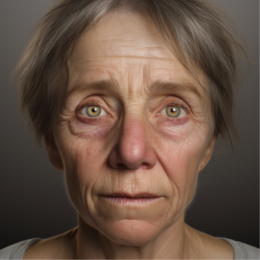How to Help Someone with Anxiety Attacks: Understanding, Recognizing, and Assisting

Anxiety attacks are a widespread issue in our society today, with a reported prevalence of around 31.1% in adults in the United States (Bandelow & Michaelis, 2015). Understanding the full gravity of this issue and how to offer help to someone going through such an experience can make a significant difference in their life. This article will shed light on what anxiety feels like, what are signs of anxiety, what causes anxiety attacks, how to help with anxiety attacks, and how to calm an anxiety attack.
Understanding Anxiety and Its Signs
Before delving into ways to help someone with anxiety attacks, it’s essential to understand what anxiety is and recognize its signs. Anxiety is a natural stress response, but for individuals with anxiety disorders, this response becomes disproportionate and pervasive. Anxiety attacks, marked by sudden and intense fear, often occur unexpectedly and can be debilitating for the person experiencing them.
What does anxiety feel like? It’s important to grasp the internal experience of anxiety to provide empathy and support. People with anxiety often describe feeling an overwhelming sense of dread or impending doom. They may experience physical symptoms such as rapid heartbeat, shortness of breath, trembling, sweating, and tightness in the chest. Cognitive symptoms include excessive worrying, racing thoughts, and difficulty concentrating. It’s vital to remember that anxiety attacks are not a choice; they are involuntary and can be incredibly distressing for the individual.
Identifying signs of anxiety is crucial for early intervention and support. Common signs include restlessness, irritability, excessive worrying, avoidance of certain situations, changes in appetite or sleep patterns, and difficulty concentrating. By familiarizing yourself with these signs, you can recognize when your loved one might be struggling and offer the help they need.
Statistics:
- Anxiety disorders are the most common mental health condition in the United States, affecting approximately 40 million adults, which is around 19.1% of the population. (Source: Anxiety and Depression Association of America)
- Anxiety disorders are more prevalent in women than in men, with women being diagnosed at a rate of 23.4% compared to 14.3% in men. [Source: National Institute of Mental Health]
- Anxiety attacks can manifest in various ways, with symptoms often mimicking those of a heart attack. It is estimated that about 25% of people who visit emergency rooms with chest pain have panic attacks, not heart-related issues. [Source: American Psychiatric Association]
What Causes Anxiety Attacks?
Anxiety attacks can be caused by various factors ranging from genetic predisposition, exposure to stressful life events, physical health conditions, and certain personality traits. A combination of these factors can create a fertile ground for anxiety attacks.
Statistics:
- The APA describes various risk factors that could lead to the onset of anxiety disorders. These include genetics, brain chemistry, personality, and life events. For example, individuals with a family history of mental health disorders are more likely to develop an anxiety disorder. [source: American Psychiatric Association]
How to Help with Anxiety Attacks?

Statistics:
- Cognitive-behavioral therapy (CBT) is an evidence-based treatment for anxiety disorders. Studies indicate that CBT can significantly reduce anxiety symptoms and improve overall functioning. [Source: National Institute of Mental Health]
- Approximately 37% of individuals with anxiety disorders receive treatment, highlighting the importance of raising awareness and reducing the stigma associated with seeking help. [Source: World Health Organization]
- Research shows that social support is vital in managing anxiety. People with strong support systems are better equipped to cope with anxiety and are more likely to seek treatment. [Source: Journal of Anxiety Disorders]
If someone close to you suffers from anxiety attacks, your understanding and support can make a world of difference. Here are some ways you can assist:
Educate Yourself
To better support someone with anxiety attacks, educate yourself about anxiety disorders and their treatments. Stay up-to-date with the latest research, statistics, and evidence-based interventions. Reliable sources such as the Anxiety and Depression Association of America (ADAA) and the National Institute of Mental Health (NIMH) offer comprehensive information to enhance your understanding.
Be a Compassionate Listener
One of the most important ways to help someone with anxiety attacks is to be an empathetic listener. Create a safe and non-judgmental environment where they feel comfortable expressing their fears and concerns. Practice active listening, validating their emotions without trying to minimize or dismiss them.
Encourage Professional Help
While your support is valuable, anxiety disorders often require professional intervention. Encourage your loved one to seek help from a mental health professional, such as a psychologist or psychiatrist. Offer assistance in finding a suitable therapist and accompany them to appointments if they desire.
Learn Coping Techniques
Familiarize yourself with various coping techniques that can help during anxiety attacks. Breathing exercises, mindfulness meditation, and progressive muscle relaxation are effective tools for managing anxiety symptoms. Encourage your loved one to practice these techniques regularly, even when not experiencing an attack, as they can enhance overall well-being.
Establish a Support System
Help your loved one build a strong support system by encouraging them to connect with friends, family, or support groups. Being surrounded by understanding and empathetic individuals can provide a sense of belonging and reduce feelings of isolation.
Assist in Lifestyle Changes
Encourage your loved one to adopt a healthy lifestyle, as it can significantly impact anxiety levels. Encourage regular exercise, a balanced diet, and adequate sleep. Avoiding excessive caffeine and alcohol consumption is also beneficial, as they can exacerbate anxiety symptoms.
Respect Boundaries
Understand that everyone copes with anxiety differently. Respect your loved one’s boundaries and avoid pressuring them into situations that may trigger their anxiety. Be patient, as recovery takes time, and progress may be gradual.
Conclusion
Supporting someone with anxiety attacks requires understanding, patience, and empathy. By familiarizing yourself with the signs of anxiety, understanding what anxiety feels like, and implementing practical strategies, you can positively impact your loved one’s well-being. Remember, professional help is often necessary, and your role as a supportive individual is to encourage and assist them in seeking the appropriate treatment. Together, we can create a nurturing environment that empowers individuals with anxiety and helps them lead fulfilling lives. Reach out to reliable sources for more information on anxiety disorders and continue to educate yourself on this prevalent mental health issue.
References:
- American Psychiatric Association. (2020). Anxiety disorders. In Diagnostic and statistical manual of mental disorders (5th ed.). Washington, DC: Author. Retrieved from https://www.psychiatry.org/psychiatrists/practice/dsm
- Anxiety & Depression Association of America. (2020). How to calm an anxiety attack. Retrieved from https://adaa.org/understanding-anxiety/panic-disorder-agoraphobia/symptoms
- Bandelow, B., & Michaelis, S. (2015). Epidemiology of anxiety disorders in the 21st century. Dialogues in clinical neuroscience, 17(3), 327–335. Retrieved from https://www.ncbi.nlm.nih.gov/pmc/articles/PMC4610617/
- Mayo Clinic. (2021). Anxiety: Symptoms & causes. Retrieved from https://www.mayoclinic.org/diseases-conditions/anxiety/symptoms-causes/syc-20350961
- National Institute of Mental Health. (2021). Anxiety disorders. Retrieved from https://www.nimh.nih.gov/health/topics/anxiety-disorders





